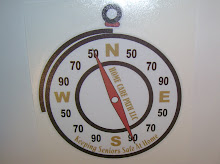Probate is the process of settling an estate. The purpose of probate is to transition ownership of the deceased's assets to a living person or institution. Assets are identified to pay debts, taxes, and administrative cost and dispersed to heirs identified in the will.
Unsupervised (independent) probate reduces the courts role and saves the family money. Unsupervised (independent) probate are informal ways to administer a seniors estate without having to follow the specific rigid guidelines of a formal probate.
Unsupervised (independent) probate is appropriate when:
1. There is no problem to resolve among the interested parties
2. There is no ambiguity in the Will that needs clarifying
3. There are no minors or disabled children that may need protection of their share
4. The validity of the Will is not disputed
5. The estate does not involve complex issues such as stocks, or an active business
6. There is no need to transfer the assets any differently than the Will lists
Typically the court must approve unsupervised probate, and the registrar of probate must still list a personal representative. Once the estate has been settled the personal representative would still file an unsupervised personal representatives statement to close the estate with the probate court.
Friday, August 26, 2011
Subscribe to:
Post Comments (Atom)

No comments:
Post a Comment